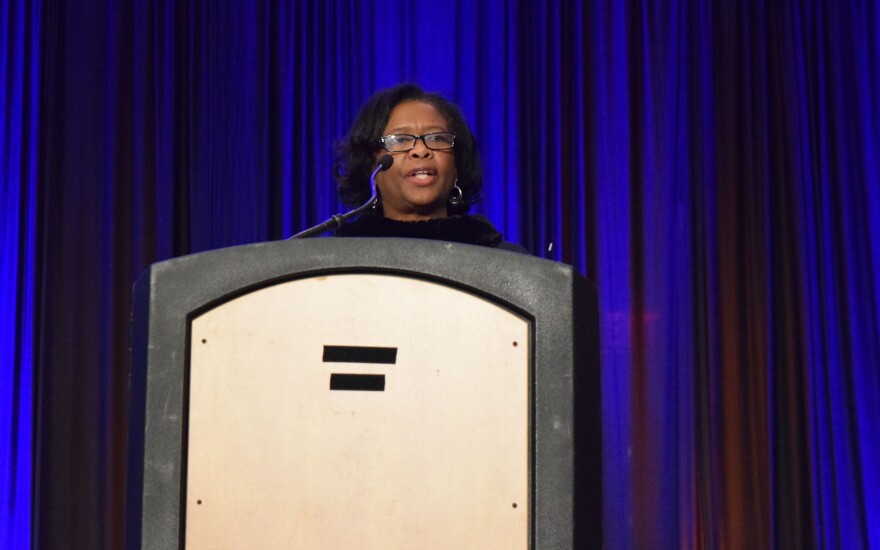Wisconsin State Superintendent Carolyn Stanford Taylor is calling for a $1.4 billion education funding increase over the next two school years.
The Department of Public Instruction released its budget ask Monday night. It would restore the state’s commitment to fund two-thirds of school districts’ expenses. And it would put more money toward special education, mental health, students living in poverty, and English learners.
In her State of Education address in September, State Superintendent Stanford Taylor said she was crafting a budget under the shadow of the COVID-19 pandemic and its disruptions to education.
“This pandemic has laid bare the enormity of the access and opportunity gaps facing too many of Wisconsin’s children of color, children in poverty, children with special needs and English learners,” she said.
Most of Stanford Taylor’s spending proposals aren’t specific to the pandemic and its effects. But they are directed to the most vulnerable students, who may require even more support after this unusual school year.
DPI is calling for a $370 million special education funding boost. This would cover an estimated 40% of public schools’ total special education costs. Right now, the state covers less than 30% of special education expenses. DPI eventually wants to increase the reimbursement rate to 60%.
>>Report Examines Consequences Of Underfunding Special Education
Julie Underwood, a UW-Madison professor emerita who advocates for public schools, says increasing special education aid would help districts serve all students, not just those with disabilities.
“It may seem counterintuitive, but when the state doesn’t reimburse the local school districts for their cost of special education services, the school district has to reach into their general fund for all children and pay for that hole in the budget,” Underwood said.
DPI also wants to restructure how English language learners are funded so that every district with English learner students receives additional support. That would cost $36 million over the biennium.
Districts would also receive $150 in extra aid for each low-income student under the budget proposal. Dan Rossmiller, with the Wisconsin Association of School Boards, says that would help make school funding more equitable.
“If a district has 6% kids in poverty or 60% kids in poverty, each of those students is [currently] treated the same for purposes of the funding formula — even though the district with 60% of kids coming from lower-income homes likely has more challenges in educating those kids,” Rossmiller said. “So this budget would provide spendable resources for districts based on their low-income student population.”
The budget would also boost mental health spending by $46 million to help schools pay for counselors, social workers, psychologists and nurses. And it would give districts more money for the youngest learners, by fully funding 4-year-old kindergarten.
The biggest spending increase would restore the state’s commitment to cover two-thirds of schools’ overall costs, boosting general school aid by $850 million. But since districts are confined by per-student spending limits, that increase would ultimately help keep property taxes in check.
Public schools experienced major enrollment declines this year, presumably because of the pandemic. DPI is proposing a change that would allow districts to use last year’s enrollment numbers for state funding purposes.
All of these budget priorities will now go to Gov. Tony Evers as he prepares his biennial budget proposal. Evers’ spending plan will then advance to the state Legislature.
In 2019, the Republican-dominated Legislature slashed Evers’ education funding proposal by more than half.
Have a question about education you'd like WUWM's Emily Files to dig into? Submit it below.
_





